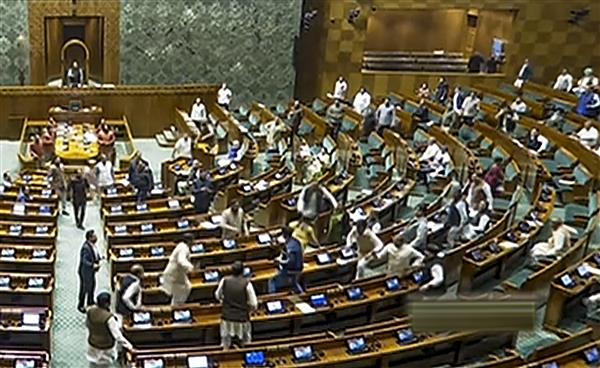
IT was a lazy winter morning in New Delhi on December 13, 2001. I was the Staff Officer to then Air Chief Marshal AY Tipnis. With the boss away on a trip to south India, we were having an easy day, doing mundane tasks, when we heard ‘crackers’ going off. The offices of the Air Chief and his secretariat faced Rajpath and from the windows there was a wonderful view of Parliament House. The circular building stood in all its grandeur and the only odd thing was the sound of ‘crackers’. We thought a marriage procession was passing by (December is a busy month during the marriage season in north India).
A baraat right next to the ‘temple of Indian democracy’? That was indeed odd. We sensed that something was amiss. Soon enough, SUVs of the Delhi Police were racing towards the Parliament complex with their sirens blaring. The crackle soon became an almost continuous rat-a-tat of guns. I raced to the adjacent office of then Vice Chief of Air Staff, Air Marshal S Krishnaswamy. As I barged in without the customary knock, the Vice Chief looked up sternly. ‘Sir, there is firing going on near Parliament House,’ I said, interrupting his meeting. Soon, we looked out of his office window: there were numerous police vehicles and cops cordoning off the area.
The terror strike that morning pushed the nation into Op Parakram; armed forces were mobilised for a year. I moved to the Air Force Station, Jammu, as Station Commander within a fortnight. I know first-hand that we nearly went to war twice that year.
What does the Parliament intrusion of December 13, 2023, signify? The intruders/protesters/attention-seekers raised slogans and opened smoke canisters. That they broke the law is obvious, but their action points to two disturbing inferences. One, they cocked a snook at Parliament’s security setup, into which crores of rupees have been pumped. It is well known that on December 13 every year, the political leadership pays homage to the security personnel who made the supreme sacrifice in 2001. Security would have been very tight and frisking would have been stricter than usual. This dereliction of duty by the security staff is far too serious to be dealt with merely by making a few heads roll at the junior level.
Two, the young people involved knew that they would be arrested and there would be dire consequences of their patently illegal act, but they still went ahead with it. They were reportedly upset over issues such as unemployment, farmers’ distress and the Manipur violence and wanted to attract the lawmakers’ attention. Were they able to convey a message to the political top brass that it needed to address these pressing matters, or was their action counterproductive? These are points to ponder for the MPs in particular and the nation as a whole.
